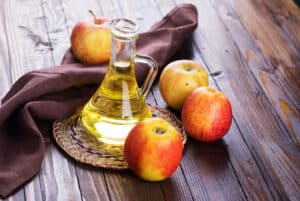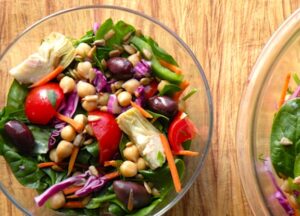Getting kids to eat well is always a challenge, and that concern is ramped up when it comes to vegetarian and vegan diets for children. A healthy diet right from the start will have a positive impact on them in the future, affecting health, weight, and avoiding excessive trips to the doctor. With the mixed messages we hear from the media, obtaining accurate information on nutrition can present a challenge. Make sure to also see the companion to this article, Vegan Kids: Practical Tips for Parents.
In May 1998, the seventh edition of Dr. Spock’s Baby and Child Care* was published. In it, Dr. Spock recommends a vegan diet for children. This sparked a long overdue discussion about the scientific and practical issues of optimal diets for children. In response, this document was prepared by a panel of nutritionists to address three main areas: the advantages of vegetarian and vegan diets, the safety of vegan diets, and planning meals for children.
The Advantages of Vegetarian and Vegan Diets
Vegetables, grains, fruits, legumes, and nuts are the optimal foods for children. Rich in complex carbohydrates, protein, fiber, vitamins, and minerals, they form the foundation for dietary habits that support a lifetime of health. Research indicates that adults who consume fruits and vegetables are those who consumed these foods during childhood. Here are some of the long-term advantages of plant-based diets:
- The prevalence of hypertension among vegetarians is about one-third to one-half that of non-vegetarians. A study of Caucasian Seventh-day Adventists found hypertension in 22 percent of omnivores, but only 7 percent of vegetarians. Among African Americans, the prevalence was 44 percent of omnivores and 18 percent of vegetarians. Adopting a vegetarian diet significantly lowers blood pressure in both normal and hypertensive individuals.
- Cholesterol levels are much lower in vegetarians. Vegetarian diets reduce serum cholesterol levels to a much greater degree than is achieved with the National Cholesterol Education Program Step Two diet. In one study published in The Lancet16 total cholesterol in those following a vegetarian diet for 12 months decreased by 24.3 percent.
- Cancer rates for vegetarians are 25 to 50 percent below population averages, even after controlling for smoking, body mass index, and socioeconomic status. One study found that people who include generous amounts of fruits and vegetables in their daily diets have lower rates of cancers of the lung, breast, colon, bladder, stomach, mouth, larynx, esophagus, pancreas, and cervix compared to people who avoid such foods.
- Obesity is a major contributor to many serious illnesses, and is much less common among vegetarians, compared to the general population. Vegetarians are, on average, about 10 percent leaner then omnivores.
- Plant-based diets may encourage a later menarche, which has been shown to be associated with reduced risk of breast cancer in epidemiologic studies.
- Fruits and vegetables contain antioxidant substances, such as vitamin C, vitamin E, and carotenoids, which protect cells against oxidative damage, which is related to cancer risk and other health problems. The multitude of phytochemicals found in various fruits, vegetables, grains, legumes, and nuts are thought to protect against heart disease and cancer.
Safety of Vegan Diets
Given these advantages, does evidence show that vegan diets adequately meet the nutritional needs of children? The answer is clearly yes. According to the American Dietetic Association’s position paper on vegetarian diets, “Appropriately planned vegan and lacto-ovo-vegetarian diets satisfy nutrient needs of infants, children, and adolescents and promote normal growth.”
In one study, pediatric developmental tests in vegetarian children indicated mental age advanced over a year beyond chronological age, and mean IQ was well above average (with an average of 116 points), providing reassurance that brain development is normal.
Questions about the adequacy of plant-based diets were raised by Dagnelie and Dwyer who observed poor growth in children following a strict macrobiotic diet. The feeding practices of macrobiotic families can vary greatly from those of vegan families. Some very strict macrobiotic diets may lack adequate calories due to fat restrictions, and these diets have been modified more recently to permit the inclusion of somewhat more fat, such as is found in seeds and nuts.
Most parents find it easy to plan a vegan diet that is adequate in protein, calories, vitamins and minerals. Following a vegan diet has been made easier in recent years since vegetarian products fortified with calcium, vitamin D, and vitamin B12 are available in most food stores.
For example, fortified Tropicana-brand orange juice contains 350 milligrams of calcium per eight-ounce serving, with a 36 to 38 percent absorption fraction according to the manufacturer, compared with a 32 percent absorption rate from cow’s milk. Orange juice also supplies good amounts of folic acid, vitamin C, and phytochemicals, with no fat or cholesterol. Vegetarian hot dogs, burgers, fortified soy and rice milks, vegetarian deli slices, and other meat analogs are also readily available.
Calorie, protein, and all other nutrient needs can be easily met by a vegan diet, supplemented with vitamin B12.
- Calcium — Some of the best vegan sources are fortified soy or rice milk, fortified cranberry, orange, or apple juice, collard greens, mustard greens, turnip greens, kale, broccoli, blackstrap molasses, tofu processed with calcium sulfate, and tempeh. Calcium absorption from these foods has been shown to be excellent.34
- Vitamin D — Vitamin D is normally produced within the body after sunlight exposure to the skin. If children do not get regular sun exposure or live in northern areas, fortified foods and supplements (such as any common multivitamin) are available.
- Protein — A diet drawn from varied plant sources easily satisfies protein requirements, providing all essential amino acids, even without intentional combining or “protein complementing” as long as calorie intake is also adequate. Good protein sources include cooked beans, tofu, soy yogurt, tempeh, seitan, nuts, seeds, and whole grains.
- Calories — Concern has been expressed that the increased bulk provided by certain foods in the vegan diet will cause a child to feel full before he has consumed enough calories. Including some refined grained products and peeled, cooked vegetables can reduce the bulkiness of meals. Nuts and seed butters, avocados, dried fruits, and added fats (e.g., vegetable oils) can provide additional concentrated calories without bulk.
- Vitamin B12 — Produced by microorganisms in the small intestines of humans and animals, vitamin B12 made by humans is not well absorbed and retained. Plant foods contain little of this nutrient. However, it can be easily obtained from vitamin B12 fortified breakfast cereals (Kellogg’s Corn Flakes, Grape-Nuts, Total, Product 19), fortified soymilk, nutritional yeast (Red Star Vegetarian Support Formula), B12 fortified meat analogs, or any common multivitamin. When reading labels, look for the words “cyanocobalamin” or “cobalamin” in the ingredient list. These are the most absorbable forms of vitamin B12.
- Iron — Diets consisting of vegetables, fruits, grains, legumes, and nuts provide adequate iron. Consuming foods rich in vitamin C, such as orange juice, with iron-rich foods enhances the absorption of iron. Some foods are naturally rich in both iron and vitamin C, such as broccoli, Swiss chard, and other dark green leafy vegetables. Other good iron sources include iron-fortified cereals, enriched bread, pasta, rice, soybeans, chickpeas, and blackstrap molasses. Dairy products are extremely low in iron and may interfere with iron balance, especially in very small children.
- Zinc — Good sources include legumes, nuts, and zinc fortified breakfast cereals (Bran Flakes, granola, Grape-Nuts, Special K).
Nutrition Panel: Patricia R. Bertron, R.D., Carol M. Coughlin, R.D., Suzanne Havala, M.S., R.D., L.D.N., F.A.D.A., Virginia Messina, M.P.H., R.D., Neal D. Barnard, M.D.
Reprinted by permission of the Physician’s Committee for Responsible Medicine.
- Explore lots more healthy eating tips on VegKitchen’s Veg Kids and Teens page as well as in the Nutrition area.
- For lots more features on healthy lifestyle, please explore VegKitchen’s Healthy Vegan Kitchen page.






Comments
No Comments